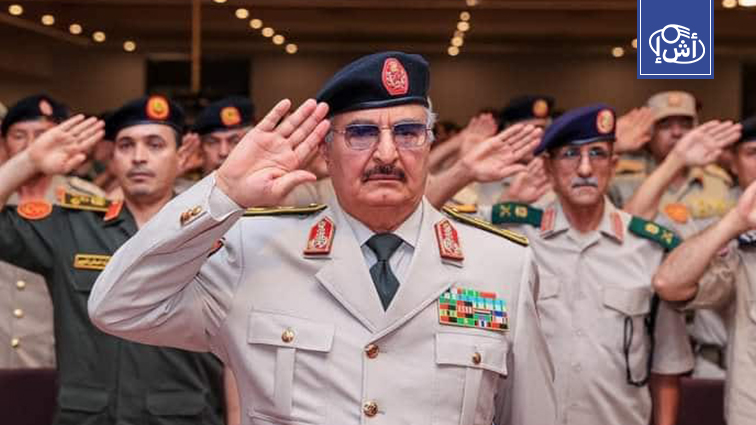Field Marshal Khalifa Haftar, Commander-in-Chief of the Libyan Arab Armed Forces, expressed his thanks and appreciation to the Libyan people and the soldiers of the armed forces in a press conference on the occasion of the 84th anniversary of the founding of the Libyan army.
In his speech, Field Marshal Haftar reviewed the stages that the army has gone through since its inception during World War II, stressing its ability to overcome difficulties to emerge as a stable, regular force.
Field Marshal Haftar also mentioned the major role played by the Libyan army during the October 1973 war, where it participated effectively alongside the Arab forces on the front lines, considering this a confirmation of Libya’s commitment to the Arab cause.
He touched on the challenges that the army has faced over the years, referring to attempts to destroy it and turn Libya into a haven for terrorism, stressing that the army, with the support of civilian youth, was able to withstand terrorism and restore security.
Haftar concluded his speech by stressing the army’s commitment to protecting the Libyan people and building the state, announcing that the army will always be the force that guarantees stability and security in Libya.
The Libyan army was first established on August 9, 1940, under the name “Liberation Army” or “Libyan Arab Force”, at the initiative of Prince Idris al-Senussi. The establishment came in the context of World War II, where the army cooperated with the Allied forces to liberate Libya from the Italian occupation. The founding meeting was held at the home of Prince Idris al-Senussi in Alexandria, in the presence of 40 Libyan leaders who were in exile. It was agreed to form an organized Libyan army to participate in the liberation of the country.
After Libya declared independence on December 24, 1951, the Libyan army was reorganized and on August 9, 1952, the establishment of the Libyan army was officially celebrated, relying on the first nucleus that was formed in exile. The Royal Military College was also established in Benghazi in 1957.
Chaos in the Libyan League… An attack and burning of the Al-Khoms Sports Club bus
